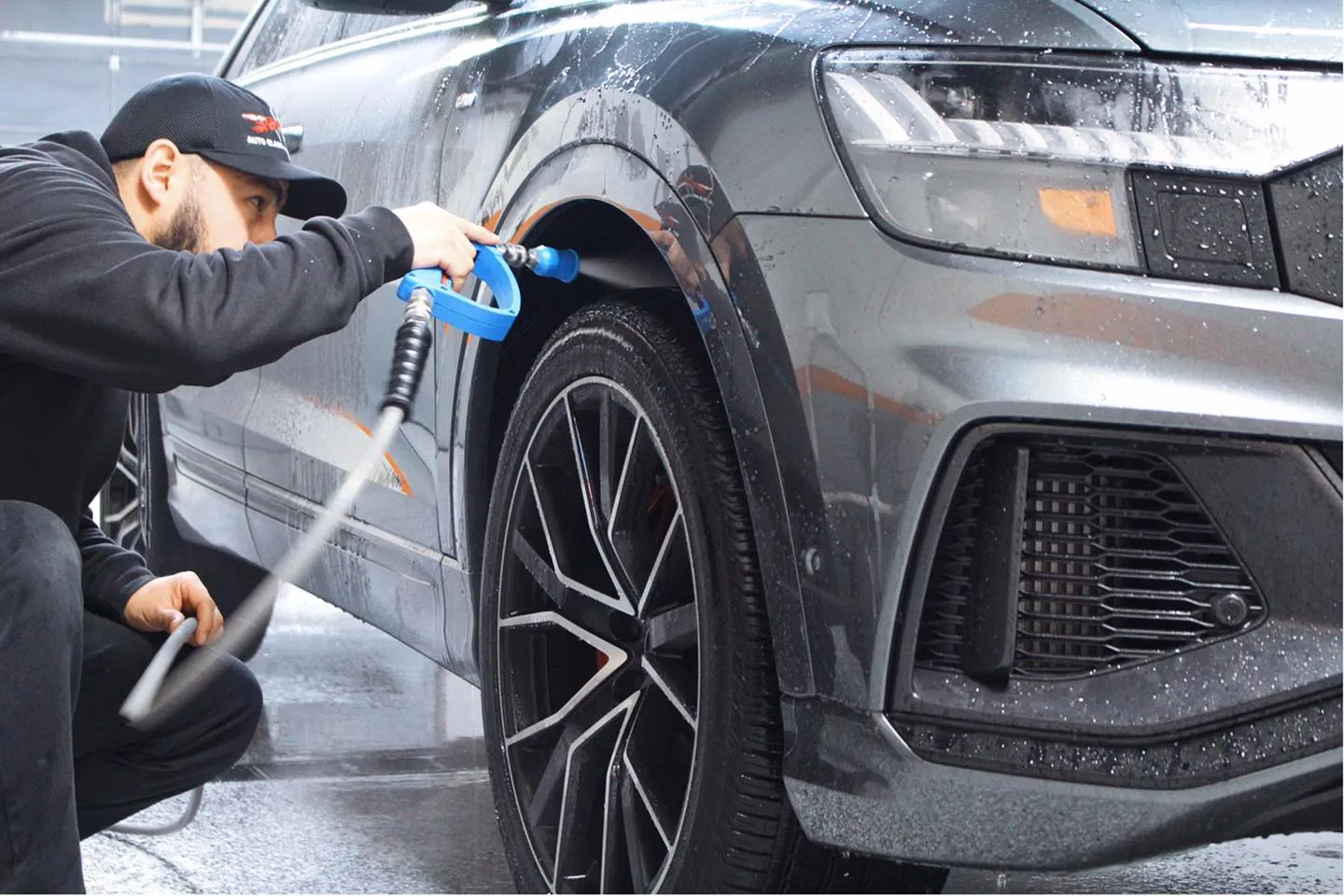Reliable Rochester Car Care for Routine Maintenance and Repairs
Reliable Rochester Car Care for Routine Maintenance and Repairs
Blog Article
Open the Tricks to Exceptional Cars And Truck Take Care Of Ideal Performance
Understanding the subtleties of exceptional car treatment is crucial for accomplishing optimal performance and guaranteeing your automobile's longevity. Routine maintenance practices, from liquid checks to tire administration, play a critical duty in stopping unforeseen failures and boosting your driving experience. Nonetheless, many lorry proprietors neglect important aspects that can considerably impact performance and security. By exploring the details of brake maintenance and seasonal prep work, one can reveal methods that not only enhance functionality but also prolong the life of the vehicle. What certain elements should be focused on to accomplish these advantages?
Importance of Normal Upkeep
Regular upkeep is crucial for making sure the long life and ideal performance of any type of automobile. Abiding by a consistent maintenance timetable not only improves the driving experience yet also reduces the risk of unanticipated break downs. Routine inspections and prompt maintenance can determine possible problems prior to they intensify into more substantial troubles, eventually saving vehicle drivers both money and time.
In addition, regular maintenance plays an essential duty in maintaining the car's resale value. A well-kept automobile is a lot more attractive to potential purchasers and can command a higher rate in the industry. This is specifically vital in an affordable auto landscape where customers usually prioritize integrity and solution history.
Furthermore, routine upkeep adds to boosted gas effectiveness and safety. Elements such as brakes, tires, and suspension systems require routine checks to ensure they run properly. Rochester Car Care. Ignoring these aspects can result in decreased efficiency and raised fuel intake, in addition to heightened threats on the roadway
Important Liquids and Their Features
4 important liquids play a critical duty in the optimal performance of a vehicle: engine oil, coolant, transmission fluid, and brake liquid. Each of these fluids offers a certain function, adding to the overall performance and security of your car.
Engine oil lubricates the moving components within the engine, minimizing rubbing and wear. It also helps to dissipate warmth, guaranteeing that the engine runs at an optimal temperature. Routine oil changes are critical to preserving engine long life.
Coolant, or antifreeze, manages the engine's temperature level by taking in warmth and avoiding getting too hot. It flows through the engine and radiator, keeping an efficient thermal balance. Rochester Car Care. Maintaining the coolant at the appropriate degrees is vital for protecting against engine damage
Transmission fluid lubes the equipments and parts of the transmission, facilitating smooth equipment changes and boosting total performance. It likewise helps to cool the transmission, ensuring it works properly under different driving conditions.
Brake fluid is vital for the procedure of the braking system. It sends the force from the brake pedal to the brake components, allowing efficient stopping power. Regular checks and substitutes of brake liquid are essential for secure driving.

Tire Treatment and Substitute Tips
Proper tire care is vital for guaranteeing automobile safety and security and efficiency on the roadway. Frequently checking tire pressure is among the most important elements of tire upkeep. Under-inflated tires can cause increased wear and tear, reduced fuel efficiency, and jeopardized handling. Alternatively, over-inflation can cause uneven tread wear sites and increase the threat of blowouts. It is advisable to check tire pressure at least once a month and before long trips, using a dependable stress scale.
In addition, routinely evaluate tire tread depth. A minimal tread depth of 2/32 of an inch is recommended for secure driving; nonetheless, deeper footsteps provide much better traction in damp conditions. Make use of the "cent examination" by inserting a dime into the step-- if you can see Lincoln's entire head, it's time to change the tires.
Rotation of tires should be executed every 5,000 to 7,500 miles to promote also use. Lastly, keep an eye out for visible indicators of wear, such as lumps or cracks, as these can suggest that substitute is needed. By complying with these guidelines, you can improve your lorry's performance and expand the life expectancy of your tires.
Brake System Upkeep
The brake system is an essential part of vehicle safety and security, directly influencing quiting power and overall driving efficiency. Routine upkeep of this system is crucial to ensure ideal capability and durability.

Pay attention for uncommon sounds, such as squealing or grinding, which might indicate that the brake pads are worn or that there are problems with various other parts. Moreover, if you experience a soft or mushy brake pedal, this may signal a requirement to inspect for air in the brake lines or possible leakages in the system.
Finally, ensure that brake lights function correctly, as they are necessary for risk-free driving. By sticking to these upkeep techniques, you can enhance your car's braking performance and ensure a safer driving experience.
Seasonal Vehicle Preparations
As periods change, vehicle readiness comes to be crucial for keeping safety and security and efficiency when driving. Each period offers unique obstacles that can influence your automobile's effectiveness and dependability. Consequently, seasonal lorry prep work are important for ideal operation.
In spring, focus on inspecting the battery, as temperature level changes can influence its efficiency. Make sure that windshield wipers are operating appropriately to deal with spring showers and inspect tire this link stress, which can transform with warmer temperature levels.
Summer needs interest to cooling down systems. Check coolant levels and hoses to stop getting too hot during high temperature levels. Furthermore, make sure that air conditioning systems are operating successfully for comfort throughout trips.
As fall methods, prepare for rain and dropping leaves. Tidy the air filter and check brakes to make sure safety on glossy roadways.
Wintertime requires one of the most comprehensive prep work. Switch to winter months tires for better grip and inspect antifreeze degrees, ensuring they satisfy the essential specs. Inspect the battery, as chilly climate can drain pipes power quickly.
Verdict
Finally, remarkable cars and truck care is essential to making sure optimal efficiency and long life of vehicles. Routine upkeep, consisting of liquid read the full info here checks, tire treatment, and brake system maintenance, substantially reduces the possibility of unforeseen failures. Seasonal prep work further enhance safety and security and dependability. By sticking to these techniques, vehicle drivers can improve fuel efficiency, preserve resale value, and develop a more secure driving setting. Prioritizing comprehensive lorry treatment is essential for accomplishing continual vehicle excellence.
By checking out the intricacies of brake maintenance and seasonal preparations, one can uncover strategies that not just enhance performance but additionally expand the life of the automobile. Parts such as brakes, tires, and suspension systems require routine checks to ensure they run successfully - Rochester Car Care.Brake fluid is crucial for the procedure of the braking system. It sends the force from the brake pedal to the brake parts, allowing effective quiting power. Brake fluid absorbs dampness over time, which can lead to rust and diminished efficiency; thus, it needs to be changed every 2 years or as recommended by the supplier
Report this page